简体中文
繁體中文
English
Pусский
日本語
ภาษาไทย
Tiếng Việt
Bahasa Indonesia
Español
हिन्दी
Filippiiniläinen
Français
Deutsch
Português
Türkçe
한국어
العربية
Escape From Mt. Gox
Abstract:Back in 2014, a scandal rocked the crypto world as Tokyo-based crypto exchange Mt. Gox was hacked and subsequently declared bankruptcy.
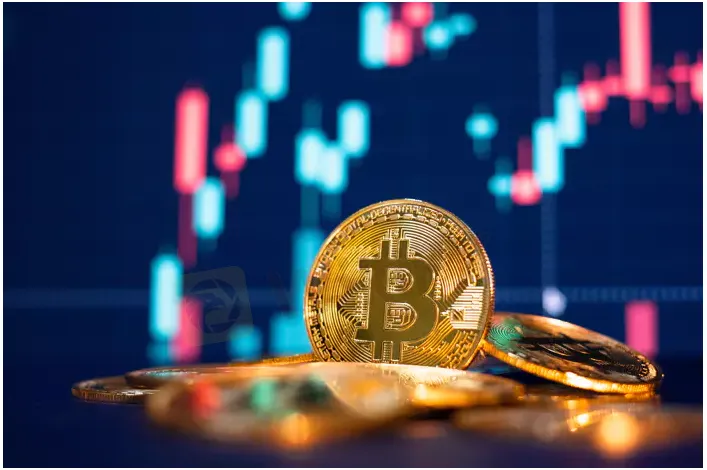
Back in 2014, as Bitcoin and other cryptos were still in the early days of their popularity, a scandal rocked the crypto world as Tokyo-based crypto exchange Mt. Gox was hacked and subsequently declared bankruptcy, setting a dangerous and somewhat confusing precedent for the crypto industry.
The resulting case took seven years to resolve, and even today there are many crypto investors who look at the industry with weary eyes, considering the impact on Bitcoin prices the incident had and—in many ways—still continues to have as creditors await their compensatory payments.
For example, in June 2022, after the Luna token collapsed, the Luna Foundation Guard sold off 80,000 Bitcoins and the result was a Bitcoin price drop. Similarly in the case of the Mt. Gox, there are creditors who are expecting to soon be paid out the Bitcoin they lost in the companys bankruptcy, however if they were to sell their newly reclaimed digital currency, Bitcoin prices could fall.
This concern was, according to Matthew Dibb of Stack Funds, behind a crypto selloff in November 2021, when Bitcoin and Ether prices both lost 14% in a single week. The impending Mt. Gox payoff, expected in 2022, “Has brought some fear into the market on a longer-term horizon”, explained Dibb.
In the case of Mt. Gox, the trustee for the bankrupt exchange was holding as much as 141,686 Bitcoins plus some Bitcoin Cash coins, as of September 2019. In July this year, he invited creditors to register online to receive their payments, which “Wont be a significant fraction of total Bitcoin trading volume, but it might push prices down”, suggested Aaron Brown of Bloomberg.
If you‘re planning to trade Bitcoin as CFDs, or if you’re simply curious, join us as we detail more of the Mt. Gox scandal and consider whether the pay-outs are likely to cause Bitcoin price volatility.
A Crypto Avalanche
The odd name of the crypto exchange is actually an acronym referring to an online game called Magic: The Gathering, which was the original focal point of the platform back in 2010. The exchange grew rapidly to become the biggest in the world, taking control of 70% of global Bitcoin transactions. Even as early as 2011, when Mark Karpeles became CEO, hackers had started targeting Mt. Gox. In the same year, the firm faced some network problems and found that several thousand Bitcoins had been lost.
As 2014 approached, clients found they weren‘t able to withdraw their money and, by February of that year, it was announced that there was a disturbance in the company’s digital wallets and that access to accounts would be frozen. With a widespread sense of horror, the world discovered that 650,000 Bitcoins had been stolen from the exchange.
Something similar happened in 2012 to New Zealand-based crypto exchange Bitcoinica, when it was forced to shut down after a series of thefts. They, however, had deposited customer funds with Mt. Gox, and so were added to the list of 24,000 creditors affected by the 2014 collapse. Crypto exchanges – which typically enable the storage and trading of Bitcoin and other cryptos – are not strangers to the threat of cybercrime. By 2017, at least ten had closed down (commonly after thefts) and more than 980,000 Bitcoins had been stolen since 2011.
As 2018 drew near, “Not a single [Mt. Gox] customer has recouped a single cent, crypto or otherwise”, in the words of Reuters. Only in November 2021 did the seven-and-a-half-year-long legal process in the Tokyo District Court come to an end, when the plan for compensation was released, sparking the aforementioned selloff.
Turbulence Ahead for Bitcoin?
Creditors are allowed to choose whether they want to receive their funds in cash or Bitcoin. The first option is likely to be a quicker one than the second, and its only if a large majority of creditors choose it that Bitcoin prices could feel an impact. If a significant number want to hold onto their digital currency, the selloff will not be big enough to depress prices. In a Reddit poll, most of those who participated said they would not elect a cash payment.
On the other hand, those who purchased Bitcoin back in 2014 (when a Bitcoin was worth less than $1,000) or earlier have seen their asset appreciate significantly, and so might want to cash in, especially if they feel crypto prices are going further down in the current bear market.
Wrapping Up
Only one month after Mt. Gox accounts were frozen, Brock Pierce and Sunlot Holdings filed a proposal with a Tokyo court to buy the company for a single Bitcoin. Pierce said he would allow creditors to take payment from the 200,000 recovered Bitcoins or receive shares in Mt. Gox instead. Five years later, Pierce seemed to believe he owned the rights to relaunch the company and made an effort to draw half the creditors into his GoxRising movement.
After a dispute with Karpeles, it turned out no ownership had been passed over to him. Karpeles, who was put on trial in Tokyo in 2017 for manipulating data, breach of trust, and embezzling, wanted, in the same year, to raise $245 million for his own plan of reviving Mt. Gox and placing it under different management. Therefore, if you plan to trade Bitcoin prices as CFDs in the months ahead, its important to watch how the markets react to the settlement terms and factor those updates into your trading decisions.

Disclaimer:
The views in this article only represent the author's personal views, and do not constitute investment advice on this platform. This platform does not guarantee the accuracy, completeness and timeliness of the information in the article, and will not be liable for any loss caused by the use of or reliance on the information in the article.
Read more
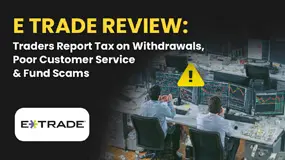
E TRADE Review: Traders Report Tax on Withdrawals, Poor Customer Service & Fund Scams
Has your E Trade forex trading account been charged a withholding tax fee? Did your account get blocked because of multiple deposits? Did you have to constantly call the officials to unblock your account? Failed to open a premium savings account despite submitting multiple documents? Is fund transfer too much of a hassle at E Trade? Did you find the E Trade customer support service not helpful? In this E Trade review article, we have shared certain complaints. Take a look!
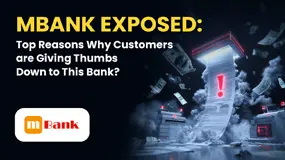
mBank Exposed: Top Reasons Why Customers are Giving Thumbs Down to This Bank
Do you find mBank services too slow or unresponsive? Do you find your account getting blocked? Failing to access your account online due to several systemic glitches? Can’t perform the transactions on the mBank app? Do you also witness inappropriate stop-level trade execution by the financial services provider? You are not alone! Frustrated by these unfortunate circumstances, many of its clients have shared negative mBank reviews online. In this article, we have shared some of the reviews. Read on!
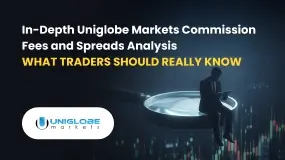
In-Depth Uniglobe Markets Commission Fees and Spreads Analysis – What Traders Should Really Know
For experienced traders, the cost of execution is a critical factor in broker selection. Low spreads, fair commissions, and transparent pricing can be the difference between a profitable and a losing strategy over the long term. This has led many to scrutinize the offerings of brokers like Uniglobe Markets, which presents a tiered account structure promising competitive conditions. However, a professional evaluation demands more than a surface-level look at marketing claims. It requires a deep, data-driven analysis of the real trading costs, set against the backdrop of the broker's operational integrity and safety. This comprehensive Uniglobe Markets commission fees and spreads analysis will deconstruct the broker's pricing model, examining its account types, typical spreads, commission policies, and potential ancillary costs. Using data primarily sourced from the global broker inquiry platform WikiFX, we will provide a clear-eyed view of the Uniglobe Markets spreads commissions prici
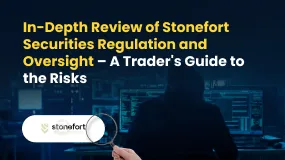
In-Depth Review of Stonefort Securities Regulation and Oversight – A Trader's Guide to the Risks
For experienced traders, the process of selecting a new broker transcends a simple comparison of spreads and leverage. It is a meticulous due diligence exercise where the integrity of the broker's regulatory framework is paramount. Stonefort Securities, a relatively new entrant in the crowded brokerage space, presents a complex and often contradictory profile. On one hand, it boasts a modern MT5 platform and a stream of positive user testimonials. On the other hand, it is shadowed by severe regulatory warnings that question the very foundation of its operations. This in-depth review focuses on the core issue for any long-term trader: Stonefort Securities regulation and oversight. We will dissect the broker's corporate structure, scrutinize its licensing claims, and analyze what the data implies for trader protection and fund security. For traders evaluating whether Stonefort Securities is a trustworthy partner, understanding these details is not just important—it is essential.
WikiFX Broker
Latest News
WikiFX's New Evaluation of ATM Capital LTD: Does its License Protect the Arab Investor?
How a Fake Moomoo Ad Led to the “New Dream Voyage 5” Scam
Is Axi Legit? A Data-Driven Analysis of Its Regulatory Standing and Trader Feedback
Trive Investigation: High Score, Hidden Risk - The Profit Paradox
In-Depth Uniglobe Markets Commission Fees and Spreads Analysis – What Traders Should Really Know
FXPesa Review: Are Traders Facing High Slippage, Fund Losses & Withdrawal Denials?
Bessent believes there won't be a recession in 2026 but says some sectors are challenged
mBank Exposed: Top Reasons Why Customers are Giving Thumbs Down to This Bank
Young Singaporean Trader Grew USD 52 into a USD 107,700 Portfolio
Is GGCC Legit? A Data-Driven Analysis for Experienced Traders
Currency Calculator



